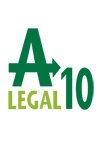Best Adoption Lawyers in Bree
Share your needs with us, get contacted by law firms.
Free. Takes 2 min.
Free Guide to Hiring a Family Lawyer
List of the best lawyers in Bree, Belgium
About Adoption Law in Bree, Belgium
Adoption in Bree, Belgium is governed by national Belgian family law and administered through local and regional authorities. The process converts a legal relationship so that an adopted child becomes, in law, a member of the adoptive family. Adoption decisions are made by a family court after administrative checks, social study reports and the required consents or terminations of parental authority are in place. Whether you are considering domestic adoption, intercountry adoption or stepchild adoption, you will work with local youth welfare services, the civil registry at the municipality and the family court that has jurisdiction for Bree.
Why You May Need a Lawyer
Adoption involves legal, social and sometimes international steps. A lawyer can help for many reasons:
- To explain eligibility requirements and prepare documentation so your application is complete.
- To represent you at the family court hearing and to prepare the legal arguments supporting the adoption.
- To advise on consent requirements and on how parental rights can be terminated or transferred.
- To help with contested adoptions where biological parents object, or where there are disagreements about the child s best interests.
- To advise on intercountry adoption procedures, compliance with the Hague Convention and recognition of foreign adoption decisions in Belgium.
- To handle associated matters such as name changes, inheritance rights, nationality questions and post-adoption legal issues.
- To assess eligibility for legal aid and to find an accredited adoption agency or social worker when required.
Local Laws Overview
Key aspects of the legal framework relevant to adoption in Bree include the following:
- National legal framework. Adoption is regulated by Belgian civil and family law, and the final adoption decision is made by a family court. The law sets out who may adopt, what consents are needed, and the effects of adoption on parental authority, civil status and inheritance.
- Types of adoption. Belgian law recognises different forms of adoption. The most common is a full or permanent adoption which creates a permanent parent-child relationship and generally severs the legal ties between the child and the biological parents. There may also be other forms that retain certain legal links with the biological family - the precise terminology and legal consequences are set out in statutory law.
- Consent and termination. Adoption usually requires the consent of the child s biological parents, except where parental rights have been lawfully terminated, where consent is refused without valid reason, or where the law provides another legal basis. Consent must be given voluntarily and in the required form for the court to accept it.
- Social study and suitability assessment. A court will normally require a social report prepared by a recognised social services provider. This study examines the prospective adoptive parents situation, motivation, financial stability, housing, and ability to meet the child s needs.
- Jurisdiction and procedure. Applications are submitted to the family court with jurisdiction over the area where the adoptive parents live or where the child resides. The court procedure involves the submission of documents, review of the social study, possible hearings and a formal court decision.
- Intercountry adoption. If adopting from abroad you must comply with international rules including the Hague Convention where applicable. The process involves the central authority for international adoption, recognition checks and additional documentation such as clearances and approvals from the child s country of origin.
- Effects of adoption. A completed adoption affects parental authority, civil status and inheritance rights. The adopted child takes the legal family status of the adoptive parents. The exact scope of these effects depends on the type of adoption granted by the court.
Frequently Asked Questions
Who can adopt in Bree Belgium?
Eligibility depends on Belgian law. Prospective adoptive parents must be adults and meet legal capacity requirements. Many factors are considered by the court and social services - for example health, stability of relationships and ability to care for a child. Couples, single people and same-sex partners may be eligible. A lawyer or the local youth welfare agency can explain the precise legal requirements that apply to your situation.
How do I start the adoption process?
Begin by contacting the local youth welfare service or the agency responsible for adoption in your region, and the civil registry at the municipality of Bree. You should also consult a family lawyer to gather the required documents, explain the type of adoption that fits your case, arrange a social study and prepare the court application.
What documents are typically required?
Documents commonly required include identity papers, proof of civil status, marriage or partnership documents where relevant, criminal record extracts, medical certificates, proof of income and housing, and any court documents related to the child s situation. For intercountry adoption additional documents from the child s country of origin will be needed. Requirements vary, so check with the relevant agency or your lawyer.
Will biological parents always need to give consent?
Consent is normally required, but there are exceptions. If parental rights have been lawfully terminated, if consent is refused without reasonable cause, or if the court finds it in the child s best interests, the court can proceed without consent. Each case is fact sensitive and may require legal representation to present the facts to the court.
How long does adoption take in Belgium?
Timelines vary widely. A domestic adoption can take several months to more than a year depending on the complexity of the case, the need for social studies, and court scheduling. Intercountry adoption often takes longer due to international procedures and clearances. Your lawyer or the coordinating agency can give a more realistic estimate based on the specific circumstances.
What are the costs involved?
Costs include court fees, fees for social studies, legal fees for a lawyer, and administrative expenses. Intercountry adoption can incur additional costs such as travel and fees charged by foreign authorities. If you cannot afford private legal help you may be eligible for subsidised legal aid - check with your lawyer or the public legal aid office.
Can I adopt my partner s child - a stepchild adoption?
Stepchild adoption is common and legally possible when the court finds it appropriate. The procedure typically requires the consent of the child s other biological parent, or a legal basis for that parent s rights to be set aside. A lawyer can guide you through the specific requirements and court application.
Does adoption affect the child s nationality?
Adoption does not automatically change a child s nationality in every case. The effect on nationality depends on Belgian nationality law and the child s country of origin. In some cases adoption can be a basis for later naturalisation or acquisition of Belgian nationality, but you should check the rules with an immigration lawyer or the authorities handling nationality matters.
Will an adoption made abroad be recognised in Belgium?
Recognition of a foreign adoption depends on whether the foreign procedure complied with applicable international rules and whether the adoption meets Belgian legal standards. If the adoption was made under the Hague Convention or with the required safeguards, recognition is typically possible. A lawyer experienced in international family law can assess recognition prospects and the steps needed.
What happens after the court approves the adoption?
After the court decision the adoption is registered with the civil registry and the child s civil status is updated. The adoptive parents assume parental authority and the legal consequences determined by the court. There may be follow-up supervision by social services in some cases. Any changes to names, documents or inheritance should be handled with legal advice to ensure correct records.
Additional Resources
For people in Bree seeking legal advice or information, consider these resources and bodies that play a role in adoption matters:
- The local municipal civil registry - for birth, marriage and adoption registrations in Bree.
- Regional youth welfare services - for the social study and child welfare assessments needed for adoption in Flanders.
- The family court with jurisdiction for your area - for filing adoption petitions and attending hearings.
- The national central authority for intercountry adoption - for procedures and compliance with the Hague Convention where applicable.
- Public prosecutor s office and child protection services - in cases where parental authority is at issue or where the child s safety is a concern.
- The local bar association and family law solicitors in the Limburg region - to find lawyers specialising in adoption and family law.
- Legal aid offices - for information on eligibility for subsidised legal assistance.
- Accredited adoption agencies and recognised non-governmental organisations that work with adoption and family support.
Contact these organisations for authoritative procedural information and to find specialists who handle adoption cases in your area.
Next Steps
If you are considering adoption in Bree follow these practical next steps:
- Gather basic documents: identity papers, civil status documents, proof of address, financial information and any documents related to the child if already identified.
- Contact the local youth welfare agency or adoption agency in your region to request information about the process and to ask about lists of required documents and social study procedures.
- Schedule a consultation with a family lawyer who has experience in adoption law to discuss your case, potential legal issues and the likely timeline and costs.
- If finances are limited, ask about legal aid and how to apply for subsidised representation.
- Prepare for the social study - be ready to answer questions about your motivations, living situation and ability to meet the child s needs.
- Keep careful records of all communications and documents - courts and agencies will require complete files.
- If you are pursuing intercountry adoption make sure you understand the requirements of the child s country of origin and whether that country is a party to the Hague Convention.
If you need personalised legal advice, reach out to a qualified family law lawyer in the Limburg area as soon as possible. Adoption decisions have lifelong consequences for both the child and the adoptive family, and early legal guidance will help you understand your rights and obligations and prepare your case effectively.
Lawzana helps you find the best lawyers and law firms in Bree through a curated and pre-screened list of qualified legal professionals. Our platform offers rankings and detailed profiles of attorneys and law firms, allowing you to compare based on practice areas, including Adoption, experience, and client feedback.
Each profile includes a description of the firm's areas of practice, client reviews, team members and partners, year of establishment, spoken languages, office locations, contact information, social media presence, and any published articles or resources. Most firms on our platform speak English and are experienced in both local and international legal matters.
Get a quote from top-rated law firms in Bree, Belgium — quickly, securely, and without unnecessary hassle.
Disclaimer:
The information provided on this page is for general informational purposes only and does not constitute legal advice. While we strive to ensure the accuracy and relevance of the content, legal information may change over time, and interpretations of the law can vary. You should always consult with a qualified legal professional for advice specific to your situation.
We disclaim all liability for actions taken or not taken based on the content of this page. If you believe any information is incorrect or outdated, please contact us, and we will review and update it where appropriate.










